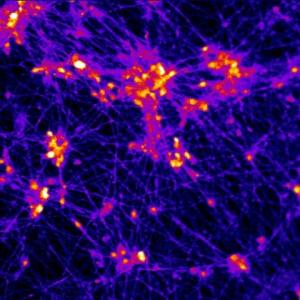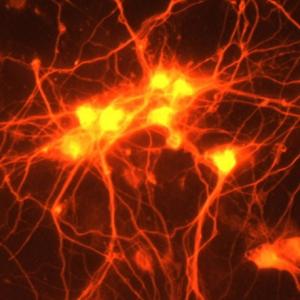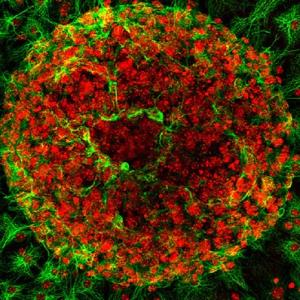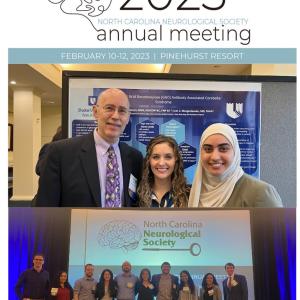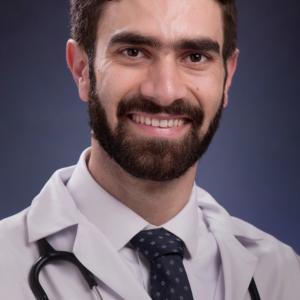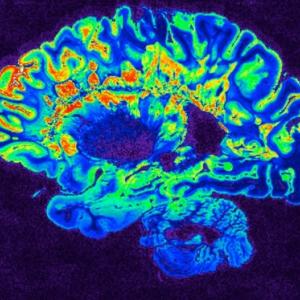Duke Neurology Research Round Up, June 2023
This May, members of the Duke Neurology Department contributed to 12 new peer-reviewed journal articles. Highlights of this research include the first study to examine trauma-associated sleep disorder among U.S. veterans, the development of a highly sensitive microscopic technique to identify the regions in the brain where seizures begin, and a small but innovative trial showing early promise for a potential alternative therapy for amyotrophic lateral sclerosis (ALS).
Duke Neurology Research Round Up, May 2023
What do analyses of stroke rehabilitation techniques, new therapeutic targets for jaw pain, and guidelines to help sleep apnea patients cope with runny noses have in common? They’re all subjects of articles published by members of the Duke Neurology Department this April. Read the summaries below to learn more about the nine peer-reviewed journal articles members of the Duke Neurology Department contributed to over the past 30 days, and find links to the original research below.
Duke Neurology at AAN 2023: Highlights from Boston
Members of the Duke Neurology Department shared their advances and insights in neurology education, health disparities, movement disorders, and other areas at the American Academy of Neurology’s (AAN) 75th annual meeting in Boston this week. This year, our faculty, staff, and trainees contributed more to the AAN than in any previous year, contributing to 20 posters and abstracts and six classes or sessions.
Fellow Spotlight: Mays Khweileh, MD
As a high school student, Mays Khweileh, MD, was fascinated by the capacity of the human brain, as well as the nature of consciousness. Now, as one of our clinical neurophysiology, she realizes the mysteries of the brain are greater than she had ever thought.
Duke Neurology Research Round Up, April 2023
This March, new research from members of the Duke Neurology Department advanced our missions of patient care, translational and clinical research, and neurology training, contributing to 16 new peer-reviewed journal articles.
Faculty Spotlight: Marjorie Soltis, MD
Marjorie Soltis, MD, came to Duke in 2016 as a resident, after her neuroscience class and time working with Parkinson’s patient convinced her to pursue neurology. One residency and fellowship later, Soltis is a sleep medicine specialist and a member of our faculty. For this week’s Spotlight interview, Soltis shares her experience helping patients with sleep disorders and reflects on what she gained from our residency and fellowship programs.
Duke Neurology Faculty, Trainees Stand Out at NCNS 2023
Winning the North Carolina Neurological Society's (NCNS) first NeuroBowl trivia contest was just the start for members of the Duke Neurology Department at the NCNS' 2023 annual meeting in Pinehurst, NC, this weekend.
Fellow Spotlight: M. Omar Subei, MD
As both a medical student and resident, M. Omar Subei, MD, was fascinated by the brain and the complex operations of this still largely unknown organ. Now as a second-year epilepsy fellow, Subei is refining his EEG skills, catching up on the latest advances in epilepsy literature and attending epilepsy clinic.
Duke Neurology Research Round Up, January 2023
The final month of 2022 saw the release of 12 new peer-reviewed journal articles written or co-written by members of the Duke Neurology Department. Highlights of our most recent publications include an evaluation of a training program designed to improve the delivery of epilepsy care in Uganda, a review of recent advances in the treatment of carpal tunnel syndrome, and a discussion of treatment options for the autoimmune condition known as neuromyelitis optica spectrum disorder (NMOSD).
Duke Neurology 2022: A Year in Review (Part 2 of 2)
The Duke Neurology Department continued to build on its success in the second half of 2022. The final six months of 2022 saw Duke University Hospital receive national rankings for neurology and neurosurgery, our first endowed professorship dedicated to help treat and understand amyotrophic lateral sclerosis (ALS), and recognition as the country’s second national center of excellence for dystonia among other achievements.
